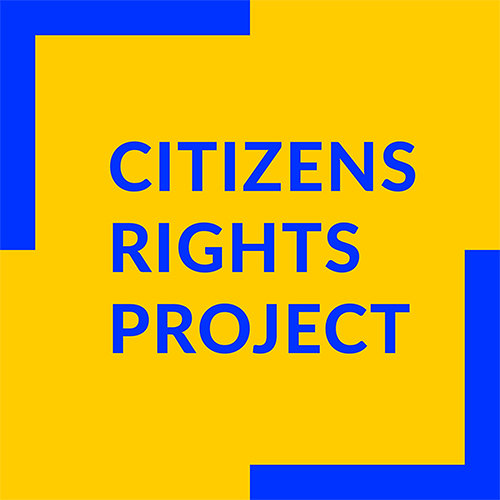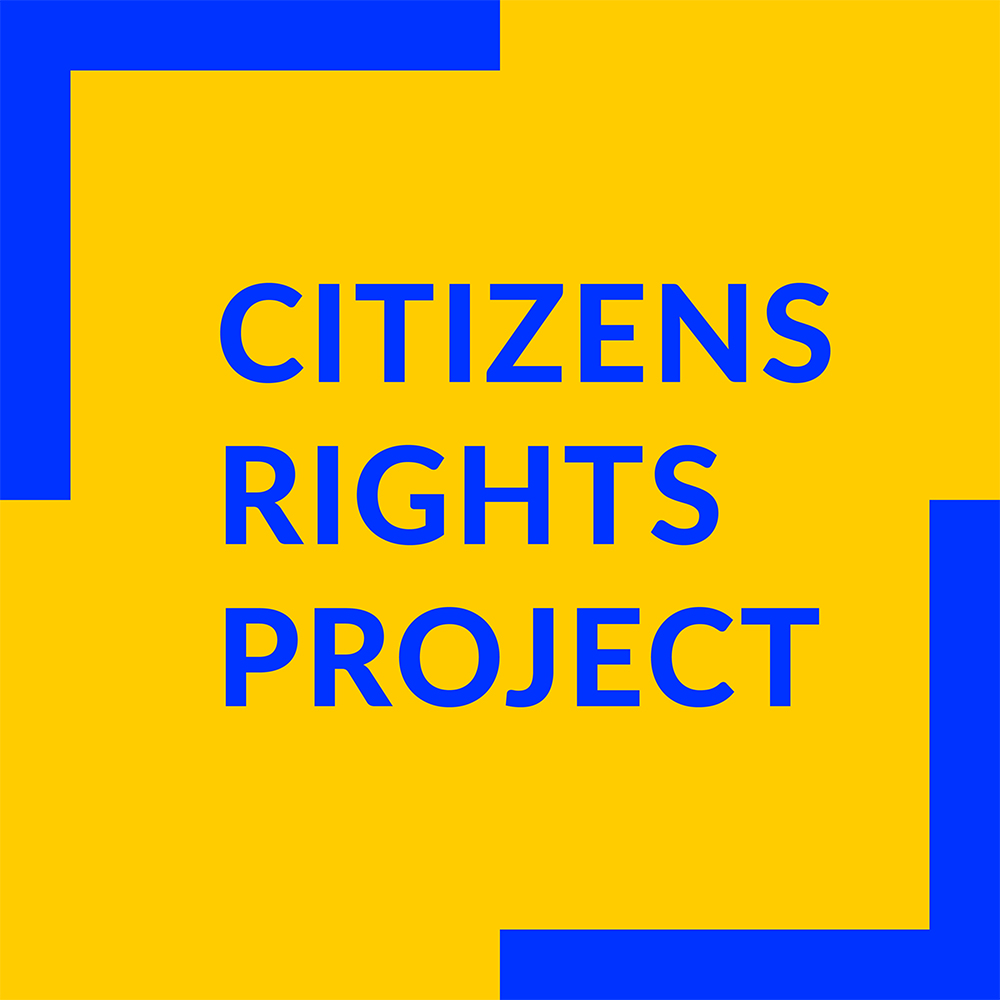
EU Settlement Scheme Home Office Statistics
The Home Office is regularly publishing statistics on EU Settlement Scheme applications. You can find them on this link.

MARCH 2021 | Citizens’ Rights Project Research Briefing: EU citizens’ access to welfare benefits and pensions
This paper, prepared by social-legal researcher Nina Miller Westoby (University of Glasgow), addresses a number of questions relating to the welfare benefits and pension entitlements of European Union citizens who began living in Scotland (or the UK) before the end of the transition period (31 December 2020) and who continue to live here. This paper is divided into two sections. The first section looks at the rights of Union citizens to access social assistance benefits in Scotland and the related terms of title II WA. The second section looks at the rights of Union citizens to access pensions and other social security benefits in Scotland and the related terms of title III WA.

This report by the Joint Council for the Welfare of Immigrants explores EEA+ care workers’ awareness, understanding and experiences of the EU Settlement Scheme. Our research finds that as well vulnerable EEA+ citizens, care workers and other key workers – the very people we are relying on to pull us through the COVID crisis – are in real danger of being left behind by the EU Settlement Scheme.
Some key findings:
- 1 in 7 care workers surveyed online did not know or were not sure what the EUSS was
- 1 in 3 care workers surveyed in person had not heard about the EUSS before we met them
- 1 in 3 care workers surveyed online did not know that there was a deadline for the EUSS or did not know when it was
With the EUSS deadline less than six months away and the UK still very much in the grips of the COVID pandemic, the situation couldn’t be more urgent. The EUSS deadline must be lifted to prevent the creation of a significant new population of irregular migrants vulnerable to Hostile Environment policies, including detention and deportation.
More information about the report and campaign here.

A report by the House of Commons Committee on the Future Relationship with the European Union looking at both UK citizens in the UE and EU citizens in the UK. It welcomes the large number of successful applications under the EUSS, however notes that they do not know how many citizens are eligible to apply and are yet to apply because estimates of these figures are not reliable. The report also supports the call for an optional physical document as evidence of status and includes several recommendations.

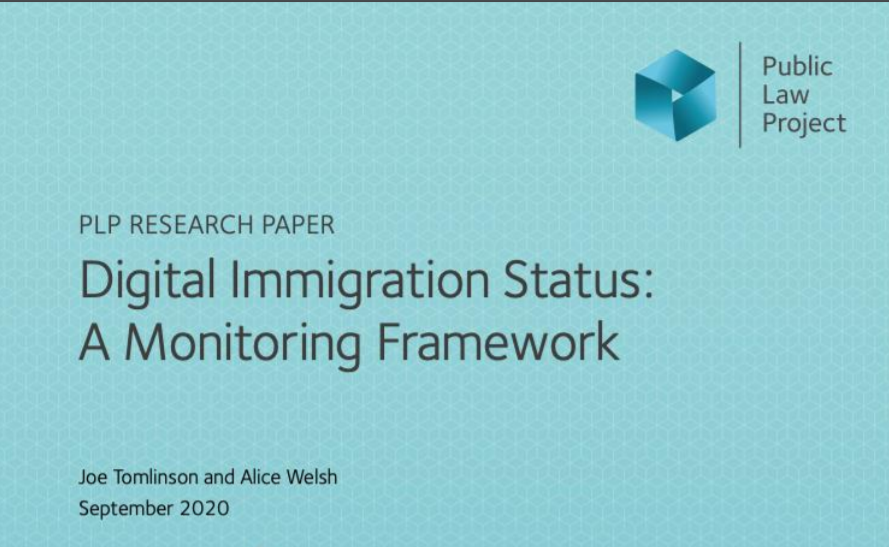
This report from the Public Law Project by Joe Tomlinson and Alice Welsh, warns that millions of EU citizens who have settled status could face discrimination when looking for jobs or housing because they receive no physical or paper-based prof of their rights to live and work in the UK.
It details the issues with a digital only system, such as the discrimination by landlords, digital exclusion to those who do not have the needed technical skills, potential for exploitation, and lessons from Windrush.
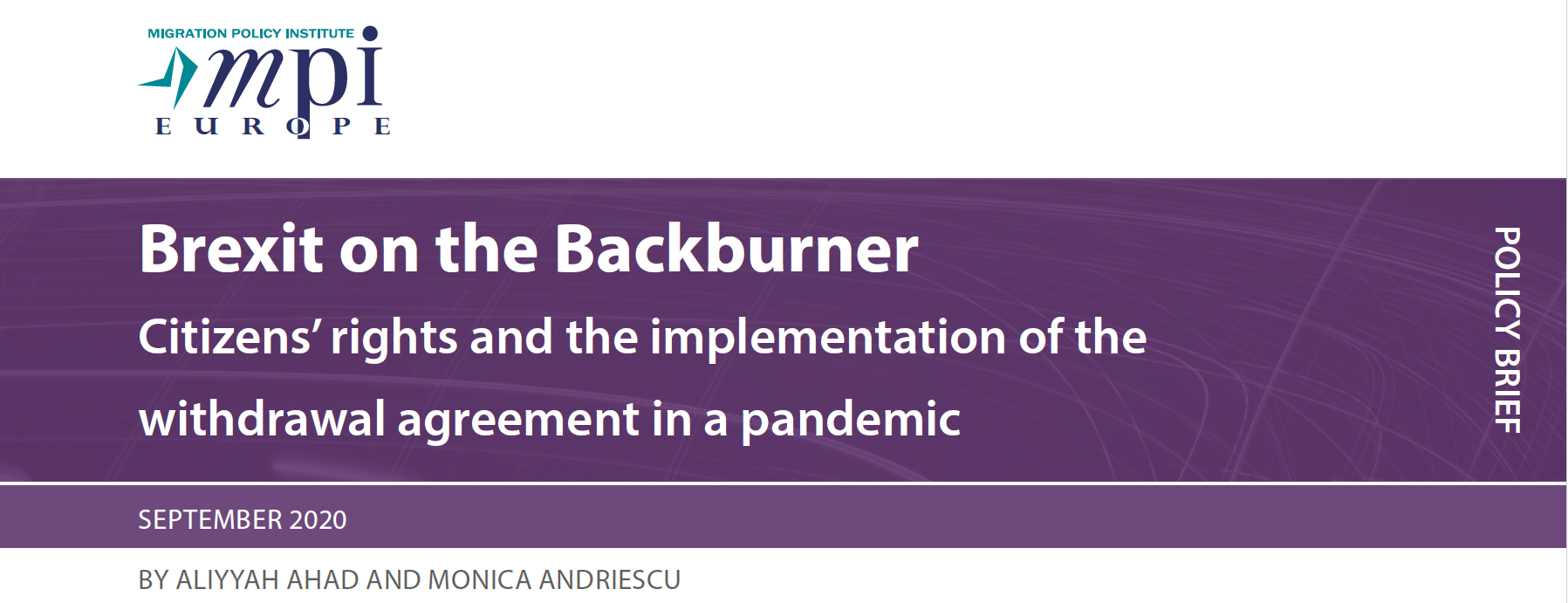

Just weeks after the United Kingdom’s formal departure from the European Union on January 31, 2020, the COVID-19 pandemic hit Europe with full force. The outbreak drew public and political attention away from the implementation of the withdrawal agreement, while also straining many public administrations, including agencies responsible for residency applications. With the clock ticking down on the transition period, set to end on December 31, 2020, many EU countries have yet to announce the details of the systems that will govern the future status and rights of their UK-national residents.
This brief sets out steps governments on both sides of the Channel can take in the coming months to “pandemic-proof” their implementation plans. These include: investing in smart outreach to would-be applicants, streamlining status-adjustment processes, and supporting civil-society groups that can help applicants through the process.

This report by the Migration Observatory at the University of Oxford looks at the vulnerable EU citizens who are at risk of becoming “irregular migrants” after Brexit.
Unsettled Status 2020, which updates previous analysis undertaken in 2018, identifies the groups who may be at risk of falling through the cracks and provides data on their likely numbers. Many are among society’s most vulnerable, such as children and young people who have grown up in care; members of the migrant Roma community; elderly people, and long-term residents who do not realise they need to apply.
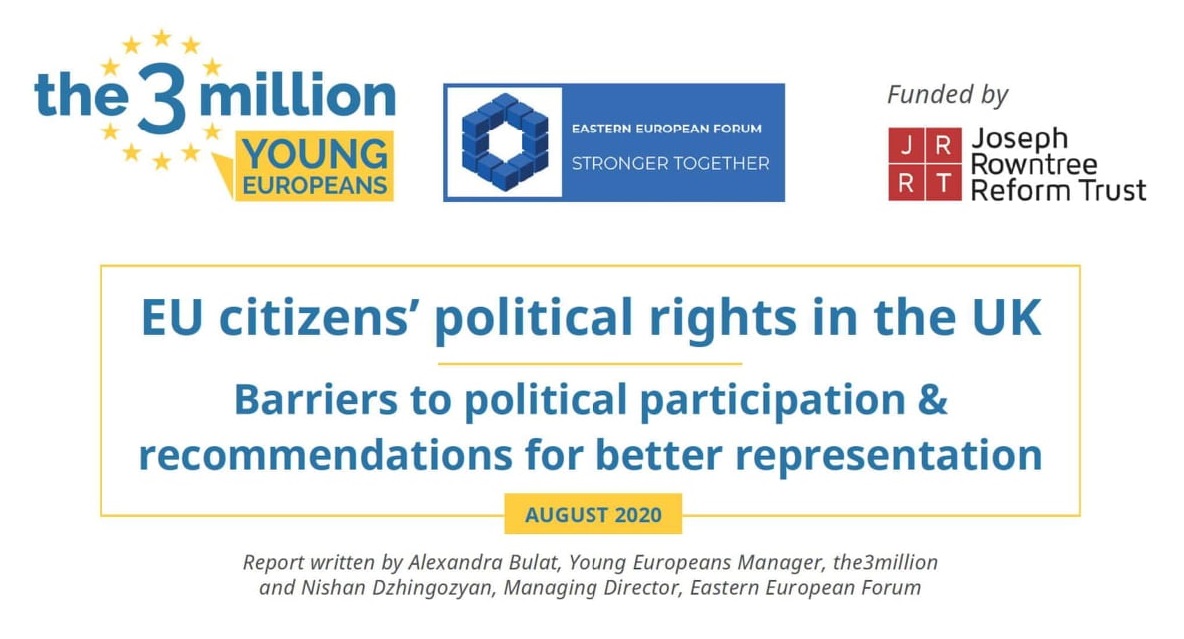
Report on political participation and representation of EU citizens in the UK.was written by Alexandra Bulat, Young Europeans Manager, the3million and Nishan Dzhingozyan, Managing Director, Eastern European Forum.
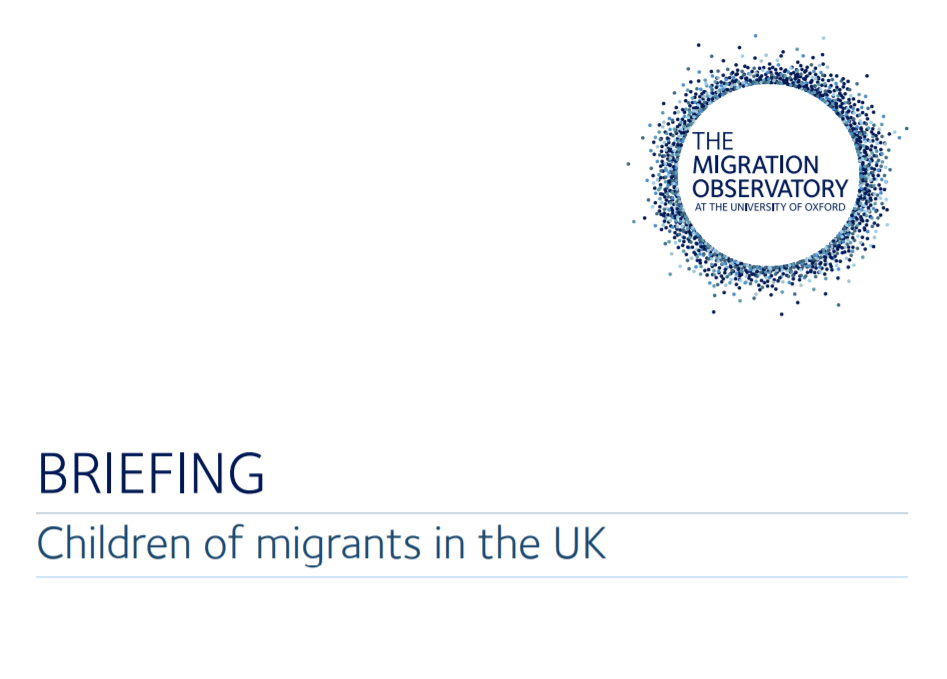
This briefing created by the Migration Observatory at the University of Oxford examines what we know about children of migrants who are under age 18 living in the UK. It looks at numbers and shares of foreign-born and non-UK citizen children, immigration statuses and pathways to citizenship, economic circumstances, and academic performance.

This briefing sets out the concerns that Unlock has about the EU Settlement Scheme (EUSS) in relation to those EU nationals in the UK that have a criminal record. Their aim is to help secure the rights of EU nationals who are eligible for settled status in the UK by ensuring that a criminal record does not unfairly exclude them.
The briefing aims to inform the ongoing work that the Home Office and other key stakeholders are doing on the process to better understand the policy and to improve practice.
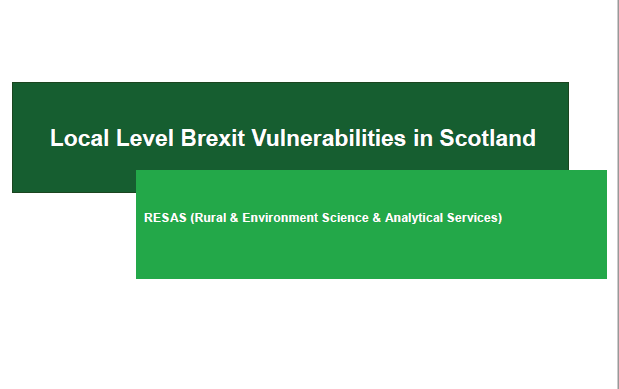
This research identifies areas of Scotland that are expected to be most vulnerable to the consequences of Brexit, and what drives those risks to support local authorities and other organisations in understanding local risks around EU exit.
You can read the report here.
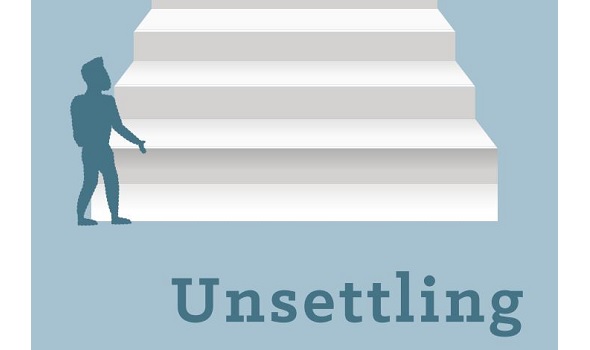
In November 2019 Migrant Voice published their report based on responses to a survey that they conducted online in summer 2019, open to anyone eligible to apply to the Settlement Scheme, whether they had already applied or not. It was also open to organisations working with EEA nationals.
You can rad the report here.

“Brexit, the EU and You” is a survey by Europe Street News designed to test attitudes, expectations and fears of EU nationals in the UK and British
nationals in other EU countries, and to gauge their information needs on post-Brexit rights.
The report published in September 2019 is available here.
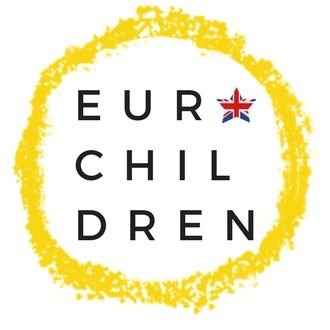
Eurochildren.info team comprising University of Birmingham’s researchers in the fields of migration and integration, migrants’ rights advocates, community organisers and legal experts has published two reports on EU citizens in Scotland:
EU nationals and their children in Scotland: a growing demographics by Dr Laurence Lessard Phillips.
EU families in Scotland after the Brexit referendum: fears, hopes and belonging by Prof. Nando Sigona and Dr Marie Godin.
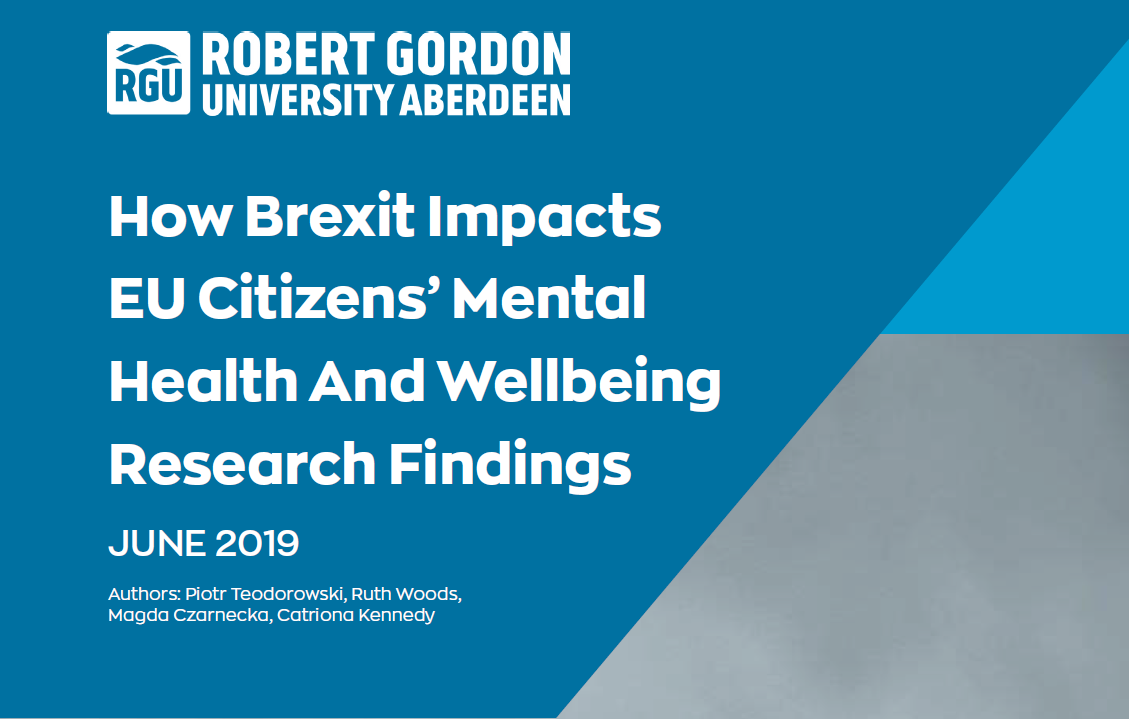
This research conducted by Robert Gordons University and Feniks shows how EU citizens living in Scotland have been affected by Brexit.
You can download the report here.
